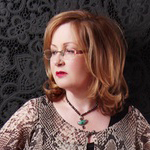
Sarah Leigh Ward is one of our lovely featured writers. You can find her episode and discover more about her work in Episode 193: Finding Your Tribe!
I had a shaky start with this book, but in the end I loved it. This book is needed in every library in every state, in every county, in every country. End of. The use of Aesop’s fables in the chapter heads and the beginning let the reader know right from the start this is a morality story, and one that accepts that morality isn’t a case of black and white, but various shades in between.
Teens and adults will like the way the story gets to the point without going through laborious details of trials and somber navel-gazing. The story was compact, concise and said a huge amount in not a huge amount of words. (200 pages.)
Aesop Lake isn’t an easy read at first, as the hate crime committed against a gay couple minding their own business is horrific, and the ugly beliefs, exacerbated by holier-than-thou attitudes, are searingly unpleasant.
BUT
The story is told from two points of view. First, Leda. She is the girlfriend of domineering bully David, who instigated the attack, and at first she stands up for him, lying to cover up what he has done. Then we find out David has threatened Leda to keep her quiet, by saying he would expose her mother as a drug-dealer.
Jonathan is one half of the gay couple who were attacked. His boyfriend, Ricky, is unconscious in hospital, too traumatised to respond to anyone. Jonathan harbours festering resentment at his small town’s attitude towards the crime, but feels as if he has no one to turn to for help.
I was prepared to hate Leda at first. She couldn’t seem to see how terrible the situation was and to get away from it, she takes a summer job away from her home town. As the story unfolds it becomes clear she is in an abusive relationship with David, and she wants to tell the truth even if it means her mother going to prison. Away from the constrictive confines of her town, she is able to see a bigger picture.
Yes, there was a big chunk of coincidence when Jonathan turns up at the lake as the son of a friend of the people Leda is working for, but their relationship, from distrust, suspicion and dismay to growing friendship is wonderful to read. The author isn’t afraid to make Leda weak and scared, but she also gives her a backbone which she finds away from her revolting boyfriend, making her see how badly he had treated her, and how badly she has behaved as a result.
And Jonathan realises he does have friends and support in unlikely places. It really is a novel about coming of age, of small town “values” and school politics. There’s such a lot in a relatively quick yet powerful read. Some may find it slightly preachy in places, but if they do, maybe they should question why. For me, the book had a lovely feel-good ending from such unpromising beginnings, and a message we should all be aware and take notice of.

BLURB
Seventeen-year-old Leda Keogh is present when her boyfriend, David, commits a hate crime against a gay couple at the town reservoir on a warm May night. When David threatens to narc on her mother’s drug dealing if Leda confesses to what she’s seen, Leda tries to escape the consequences, by taking a summer job out of town.
Jonathan Eales is one of the victims. When he and his boyfriend, Ricky, are caught skinny dipping by two high school thugs, Jonathan manages to swim out of reach, but watches in horror as Ricky is severely beaten.
Jonathan wants to fight back, but fears the small rural community, where he is an outsider, will protect their own.Two voices weave a coming-of-age story that confronts diversity and bullying in rural America.


